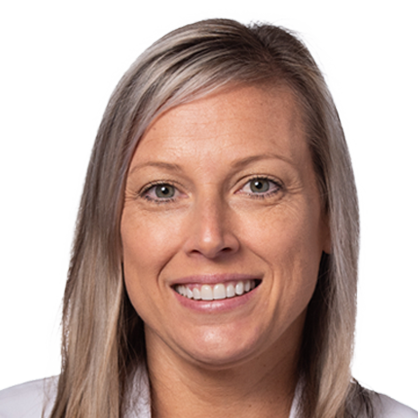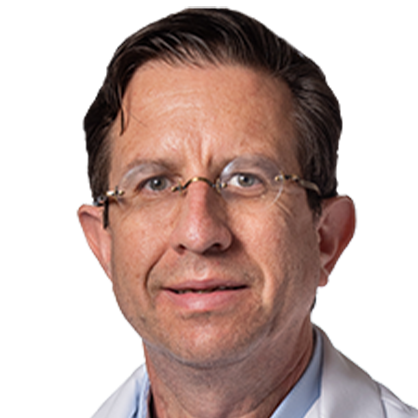Exciting Opportunities Await at Booth #1258
Join the SCP Health team at CHEST24 and find opportunities to:
- Connect with leading experts: Engage with clinical leaders and discover insights into the future of critical care medicine and how we’re shaping it together.
- Discover your next career move: Explore a wide range of career opportunities, from leadership roles to professional development opportunities, and find your perfect fit at one of our locations across the nation.
- Win exclusive prizes: Enter our exclusive giveaways for a chance to win top-tier prizes.
Have Questions?
Please fill out our form, and an SCP Health representative will reach out to answer any questions or curiosities you have.
Who We Are
SCP Health is a clinical company partnering with clinicians and health care organizations to:
- Improve patient outcomes.
- Enhance the clinician experience.
- Increase patient access to care.
What We Do
We work to provide clinicians with the support needed to deliver exceptional care by:
- Reducing administrative burdens.
- Creating a balanced work environment.
- Providing education and training.
How We Do It
We believe care is delivered locally and work with physicians and clinical teams to:
- Ensure every shift is filled with qualified clinicians.
- Provide documentation support from professional coders
- Utilize clinical playbooks to improve quality metrics
Why SCP
SCP Health offers transparency into our strategy and approach including our:
- Respect of the sanctity of the clinician-patient relationship.
- Support of clinical best practices.
- Focus on keeping patients at the center of everything we do.
What do you think is most important to intensivist clinicians today?
When I talk to critical care physicians, nurse practitioners, and physician assistants, I am always struck by how important it is to walk through how we design protocols and training to ensure quality care delivery, how we integrate across departments, and how we provide administrative support.
What intensivist clinicians care about at the end of the day is the work they are doing to drive patient care, to help their patients, and that’s what SCP Health is focused on as well.
What impact do an ICU and intensivists have on a hospital’s patient population?
In a very real and meaningful way, intensivists impact patients on a global scale. There’s a day-to-day impact that they have on the patient who is presenting organ dysfunction and demise, by identifying and treating it, but that’s only one part of the impact.
A huge part of the intensivist impact has to do with the family and our integration with them. When patients come into the ICU, they and their family are often at the most vulnerable point of their lives. They may be on the precipice of dying, are so critically ill, or have a long-term, chronic illness, but it also could be someone who was previously healthy and now has this terrible thing going on and they have children, parents, siblings, spouses, etc.
Intensivists have to be able to connect with families and meet them where they are, and that is a huge component of critical care medicine, particularly in palliative care, where you have to navigate tough conversations and intense feelings very, very well.
How should critical care clinicians integrate with other departments?
Intensive care requires huge interdisciplinary involvement and engagement. They are one player on a very large team that must integrate with pharmacy, respiratory therapy, bedside nursing, case management, physical therapy, occupational therapy, palliative care, etc, to help manage the patient along the continuum of health and healing or even dying.
What sets SCP Health apart from other clinical services organizations?
SCP isn’t a staffing company, and it isn’t a locums company. We are building and designing critical care programs that work for specific sites in a way that sets us apart from our competitors, including offering the necessary training and oversight to ensure the critical care clinical team is able to deliver quality care to patients with the highest acuity.
We also focus on finding clinicians who understand that it’s not just the technical skills that make a phenomenal clinician, but it’s also the interpersonal skills – how you receive and relay information, and how you collaborate across units. We believe strongly in fostering great relationships across the various service lines at hospitals. We go to the intensive care patients in the emergency department instead of waiting for them to come to us, help across the hospital for emergencies and code blue coverage, and consult if patients need procedures.
What do you think draws nurse practitioners and physician assistants to the critical care field?
Critical care nurse practitioners and physician assistants are seeing anywhere from six to eight and up to ten patients, depending on the skill set, level of expertise, and the acuity of the patients.
Often what drives NPs and PAs to critical care is the ability to impact the management of the patient and expand their skill set to learn the art of medicine, including doing procedures such as intubating patients, putting in central lines, and more, depending on their scope and the level of training.
What can critical care nurse practitioners and physician assistants expect in the way of support from SCP Health?
We offer training to nurse practitioners and physician assistants help them become procedural experts, including a simulation course where they receive both didactic and hands on training in each skill set to be able to learn the proper methodology for inserting lines and integrating, followed by a minimum of four months of direct clinician-to-clinician training. During that onboarding period, they’re becoming procedural experts, learning how to manage patients and all the different types of comorbidities and clinical conditions, as well as how to document to ensure the highest level of quality and accuracy.
Leaning on their extensive training, we enable nurse practitioners and physician assistants to function at the highest scope as critical members of physician-led teams. Often, we come into hospitals and these roles are functioning as scribes, they aren’t doing a lot of management or procedural components and their delineation of privileges is minimal. In response, we build and design all that so every member of the clinical care team, including physicians, can practice at the highest level of their training.
We provide comprehensive support to include quality and clinical management, as well as everything needed for billing and coding for their operational schedules.
What sorts of unique offerings does SCP Health have for critical care clinicians?
In addition to standard staff physician and medical director roles, we also have a full-time, critical care, traveling team. The members of this team are rock star clinicians – intensivists, nurse practitioners, and physician assistants – and they are deployed to new sites to help launch programs.
This team provides a strong sense of stability and leadership from the start, providing extensive amount of training and partnering with hospital care teams to really drive processes from that quality perspective.
Overall, SCP believes strongly in an integrated approach to medicine, and facilitates working across departments to support critical care units in delivering the best possible high-acuity care to patients.

“SCP Health functions as a large company but they foster relationships and I think that’s really what makes them different. They are a large corporation, but they make us feel like a family. I always have someone to answer my questions and have close relationships with leadership to provide much-needed support.”

“SCP is very big on making sure that we’re giving quality health care, not just filling a shift.”

“I really do like that SCP is physician-led. It never seems to be corporate edicts that come down. There’s always a thought process to it and a reason behind it. It is definitely a lot more straight forward and very clinician- and patient- driven.”

“One of the great things about working with SCP Health is that they allow us to practice autonomously. So, what that means is that a lot of the administrative burden, a lot of the data gathering and calculations, that’s done by the SCP team. By having that done, we’re now free to practice medicine again.”

“I think the support of the physician-led leadership structure is a big factor as a clinician. SCP University is another example. It’s a wealth of information and resources provided to our fellow physicians, NPs, and PAs. Additionally, the data analytics are very strong, and using that data to make data-driven decisions allows me as a leader to put my team in a position of success and align my goals with our hospital’s goals. Because that’s really important when we’re caring for patients on a daily basis.”
Bringing the C-Suite to the Bedside
The ICU is a critical component of the hospital, providing care to the sickest patients. Today’s environment demands a new approach and mindset when it comes to the ICU, one that combines the strategic thinking of the C-Suite with the clinical and operational skills of a clinician.
Read what Erika Gabbard, DNP, RN, CCNS, CCRN-K has to say.
Download The Whitepaper




